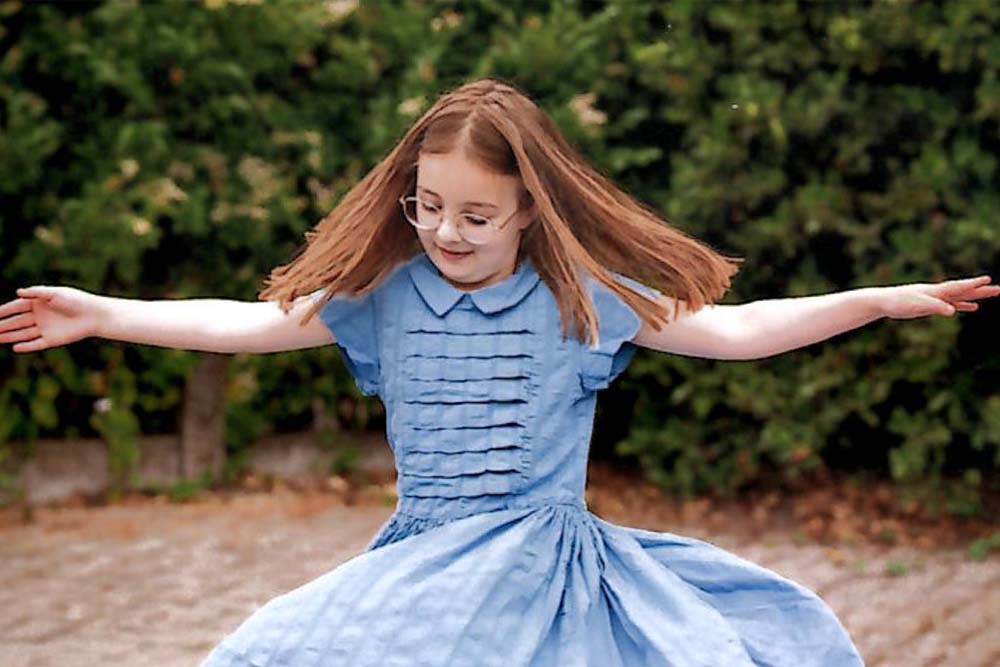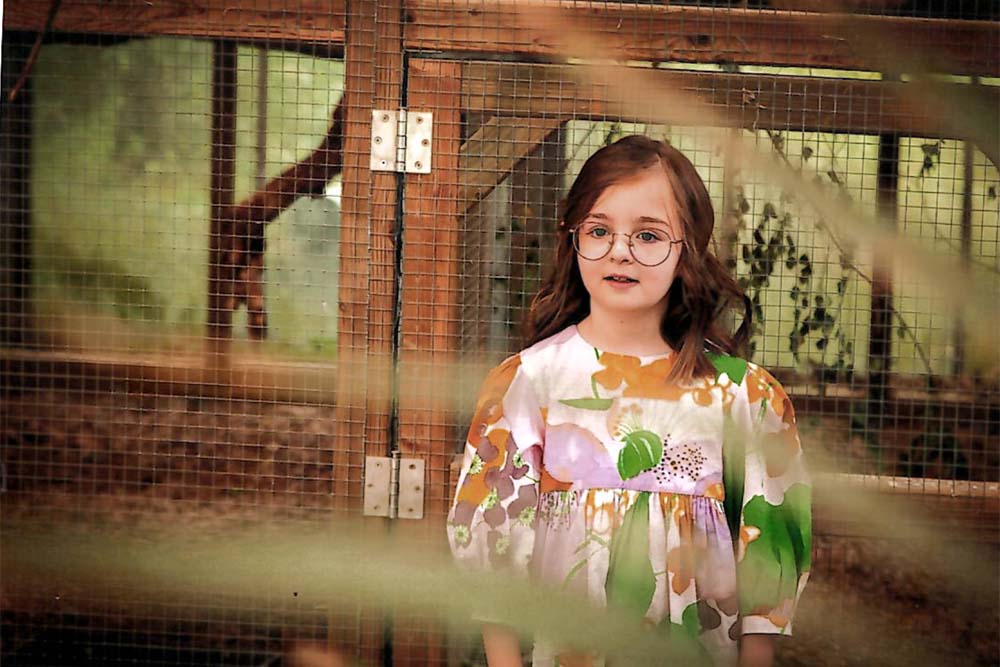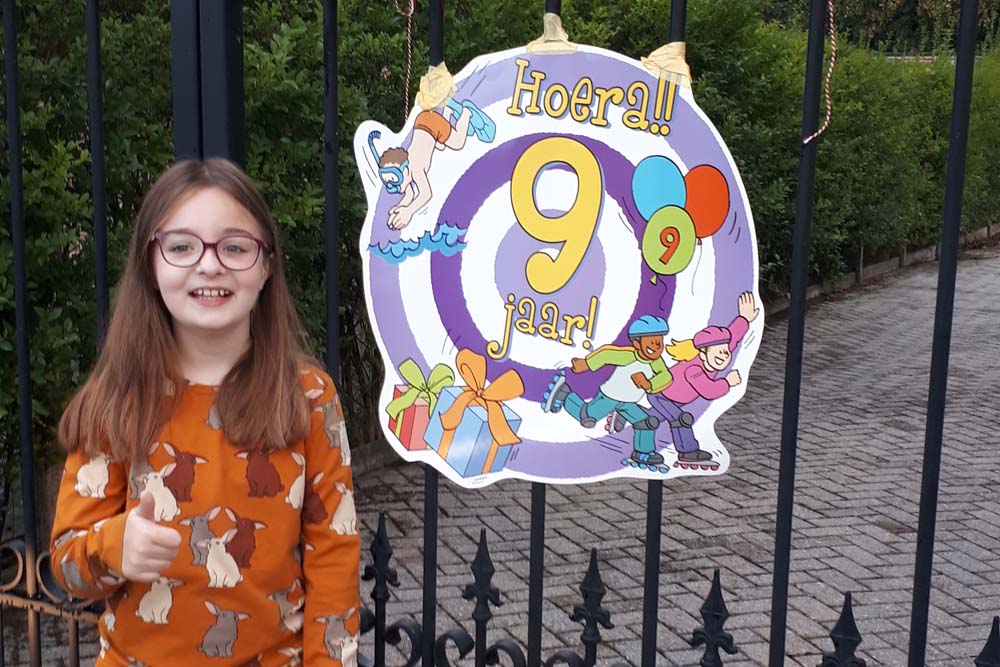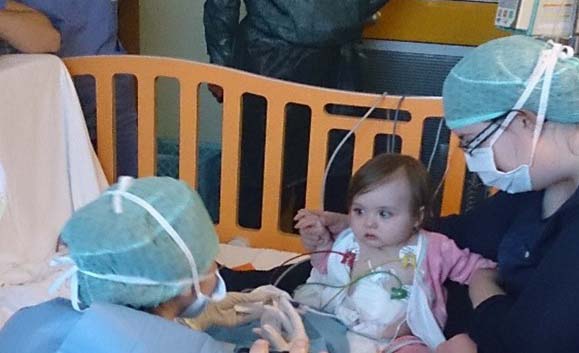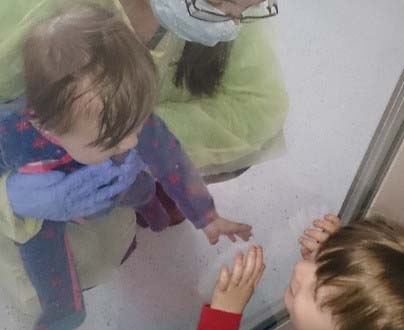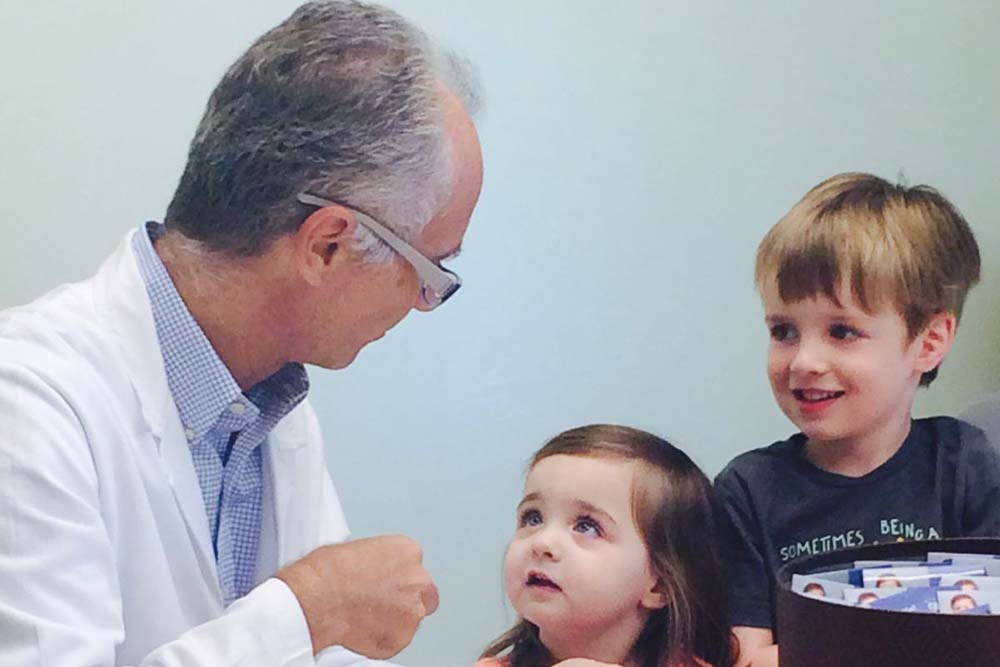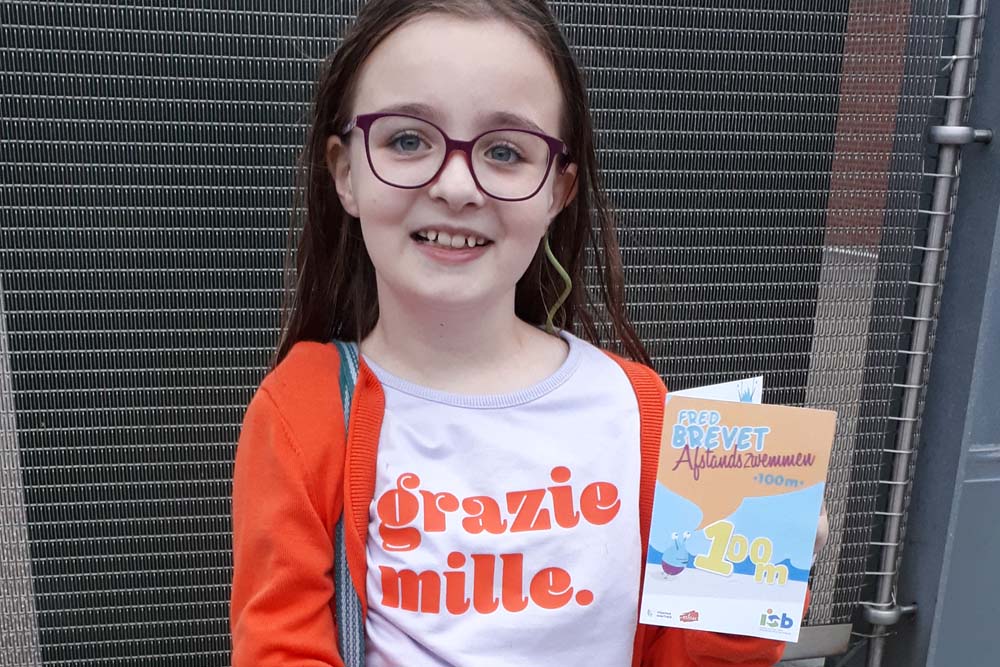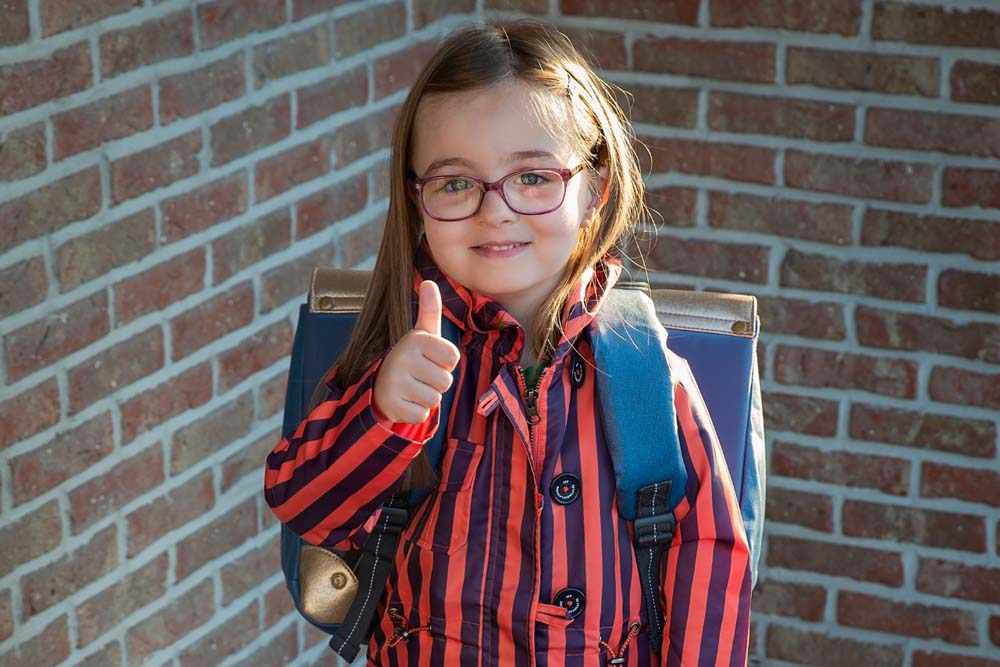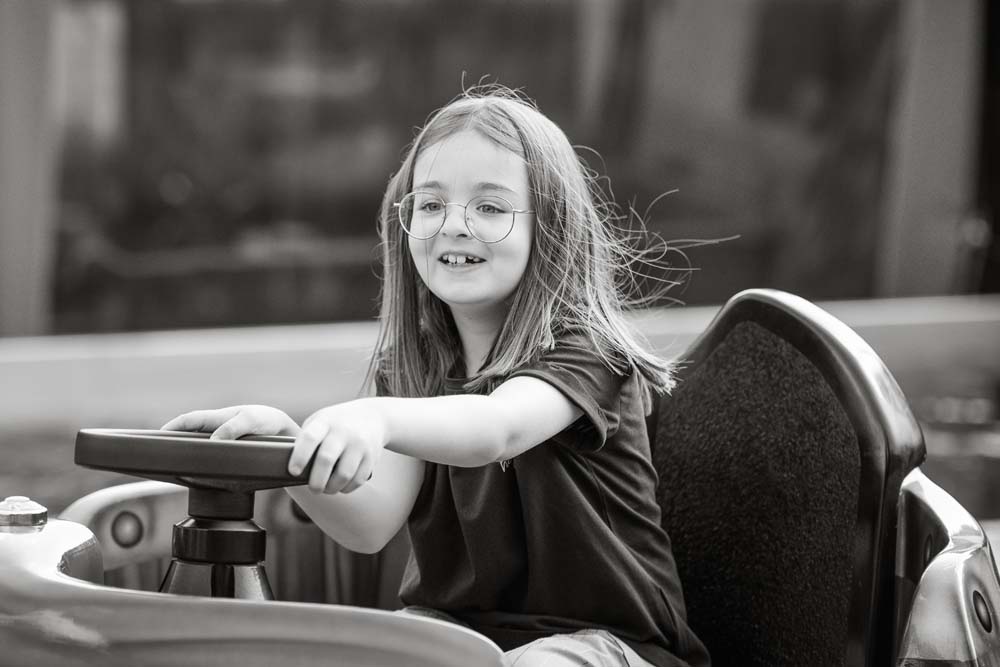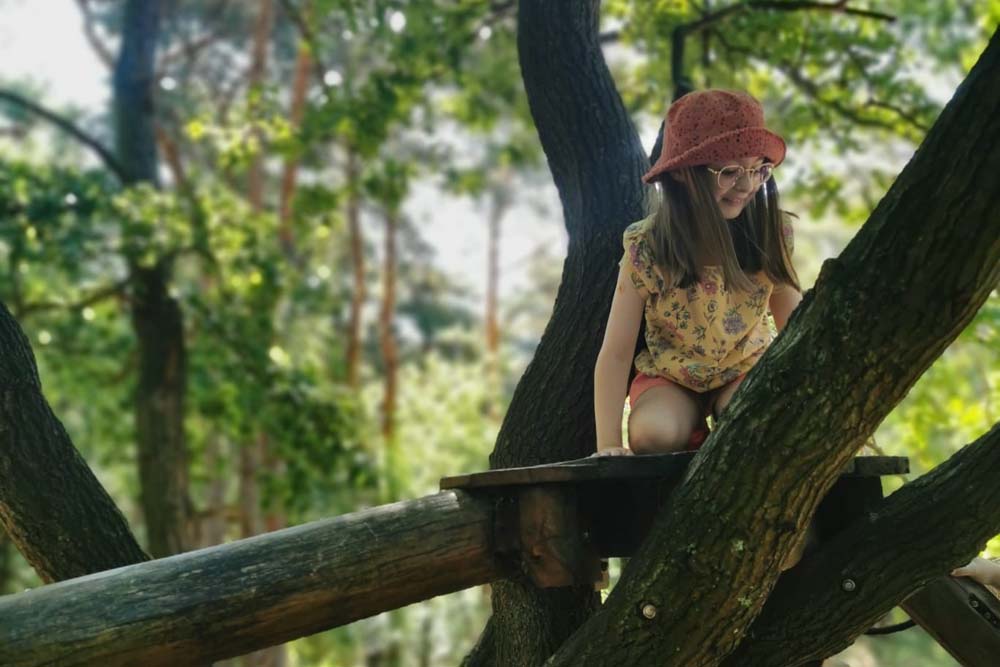She was the first Belgian girl with the rare immunodeficiency ADA-SCID treated with the gene therapy approach developed by Telethon researchers. From the risk of a life of seclusion, she has conquered the possibility of doing whatever she likes.
Margaux is just a few weeks old when for the first time she contracts severe pneumonia and is hospitalized. Her parents, Marijike and Hein, do not know that episode will be the first of a series, until the most serious one on New Year's Eve: Margaux fights so hard to breathe that they think they are about to lose her. After being hospitalized in intensive care, Margaux recovers but after a few weeks she gets diagnosed with ADA-SCID: an immunodeficiency with a genetic origin that is so rare that hers is the first official case described in Belgium. The only possible cure is a bone marrow transplant, but a compatible donor cannot be found.
Margaux’s parents just have to try to live knowing that any microbe could kill her.
“At first we were afraid even to wash her without the help of the nurse. We feared we were always doing something wrong that might put her in danger. We took all sorts of precautions, including stopping his healthy older brother Mathieu from going to daycare for the fear he might catch an infection and pass it on to his sister. We took turns, one in the hospital with Margaux and the other at home with Mathieu».
Gene therapy, a hope from Italy
Margaux condition remains serious. However, one day her parents discover that at the San Raffaele-Telethon Institute in Milan researchers have been developing since some years a gene therapy approach that allows stem cells to be genetically corrected, without having to find to a donor.
«We had never heard of it: we were scared, but it was our only hope».
Marijike, Margaux's mother
«Traveling by plane was too risky, so we decided to go to Italy by car, using a sterilized vehicle. We had a special authorization to cross the border."
Upon arrival, Margaux undergoes various tests, which confirm her suitability for gene therapy. The parents are very concerned: the treatment could give back a normal life to their child, but it is also very demanding. In order to obtain the blood stem cells to be corrected, a bone marrow sample needs to be harvested, under anesthesia. Then, before the engineered cells are reinfused into the blood, chemotherapy must be used to make space in the bone marrow.
“The anesthesiologist told us that he would treat Margaux as if she were his daughter: this comforted us a lot, but when they took her away our hearts stopped. Not to mention chemotherapy, we feared it might weaken too much our already fragile little girl. Luckily everything went well: she didn't even lose her hair and recovered perfectly».
The rebirth of Margaux
On the 5th of September 2014, shortly after her first birthday, Margaux received her corrected cells. Four months later, the family could finally go home: it is two weeks until Christmas. The country welcomes them with a surprise: friends have organized a quiz to raise money for them. It was the first of a series of events, including a charity dinner organized by the school where mum Marijke works, which involved more than 1000 people and ended up in the newspapers, or the sale of homemade sweets by dad Hein's colleagues.
«We felt surrounded by so much warmth, while away for so long so many people - even strangers – put so much effort for our little girl. We will always be thankful and grateful for all the help and support we have received."
In 2016, the gene therapy received by Margaux becomes a full-fledged drug, Strimvelis, available throughout the European Union.
Two years later, on the 27th of November 2018, Margaux's parents brought their testimony to Brussels in front of the European Parliament in a meeting also attended by the director of SR-Tiget Luigi Naldini and the deputy director Alessandro Aiuti: «already some month after the therapy we were able to celebrate our first Christmas together, at home. In 2015 things improved until in May 2016 our little girl was considered cured, so much so that she could start going to kindergarten. We will always be grateful to those who made this possible and hope that this therapy is available to all children like our daughter."
A normal life
Thanks to gene therapy, Margaux has grown up, she rarely gets sick; she is a happy little girl and can do everything her friends do. From the very beginning she was able to attend school regularly: she particularly likes language lessons and is good at reading and writing. She is curious, she wants to discover the world: she likes going to the library, visiting museums, but also walking in nature, climbing trees.
Another passion that she has been able to cultivate, and which otherwise would have been completely precluded from her, is swimming: she regularly attends the public swimming pool, takes lessons and in the summer she bathes every day in the little pool set up in the garden. Her parents still remember the first time she was finally able get in the water, at the age of four: she was not afraid at all and as soon as she got in, she lay down on her back and immediately started floating as if she had never done anything else before.
Although she does not remember the moment of the gene therapy infusion, Margaux is very close to the medical staff of SR-Tiget: for her it is like a second home, every year she counts down the days until the check-up. She is aware of what she has been through because in the family they often talk about it with her. In her bedroom she has a wall with photos of her visits to Italy and keeps a large memory box with many photos, magazines and other memories related to the therapy, to Milan, to the SR-Tiget staff and especially to Professor Aiuti.
«This therapy is very important because it saves lives. We are convinced that this was the best and only solution in the world for our daughter».
Marijike
“We now have a beautiful, completely healthy girl who is enjoying life. None of this would have been possible without gene therapy."
